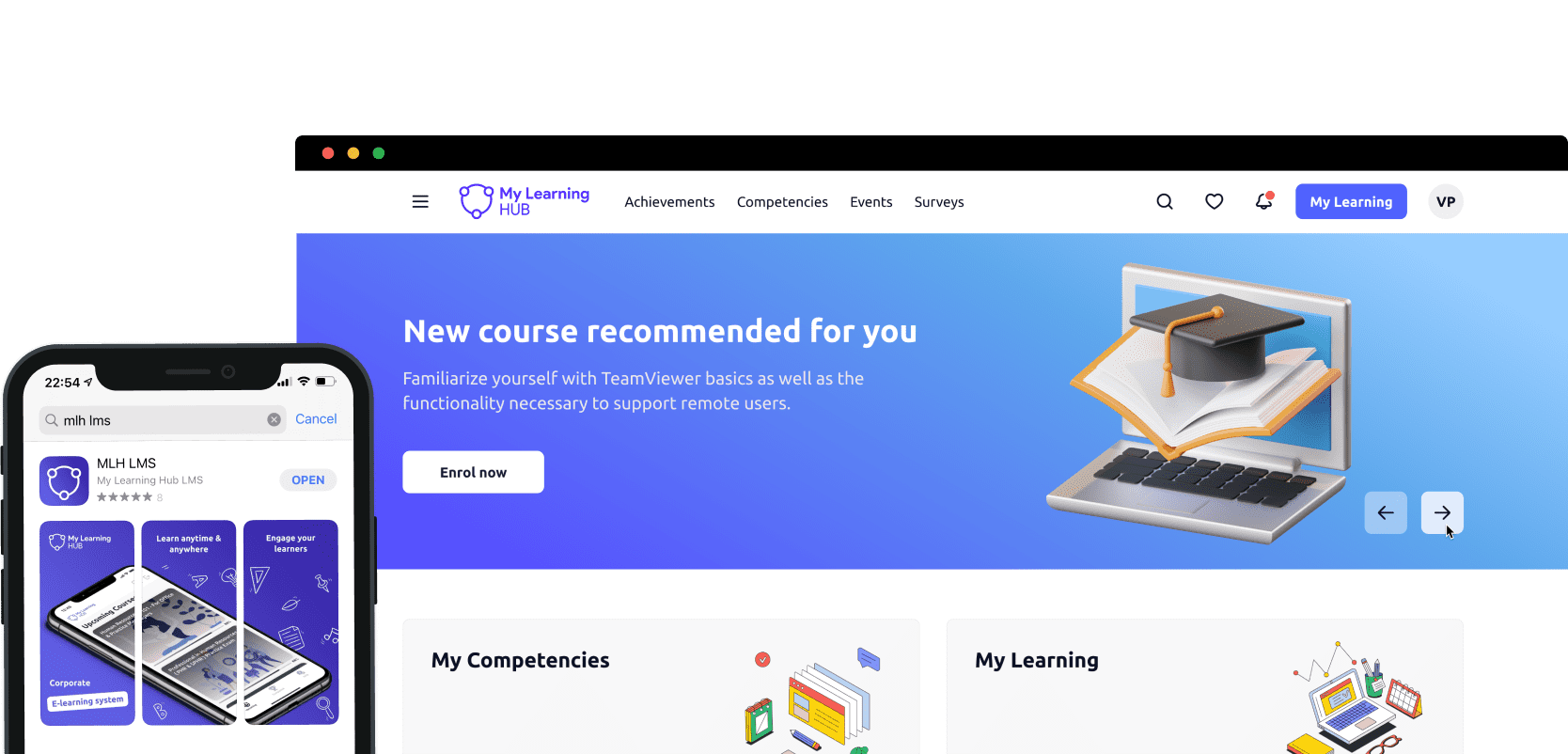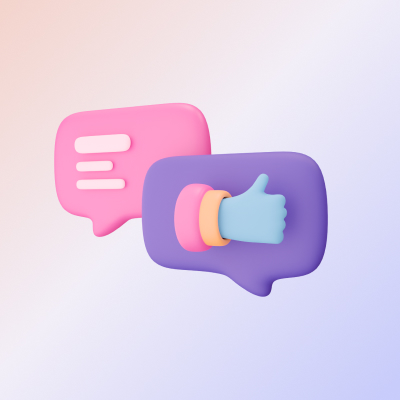
Working with generations born over seven decades may sound like a tall order. But it’s a non-negotiable in the current day and age.
Gen Z, Millennials, Gen X and Baby Boomers are working alongside one another in organisations up and down the country. And whilst it can work well, such a broad generational mix within the workplace presents challenges that managers have to address.
Each generation is slightly different to the last. Of course, there is plenty of common ground. But for managers looking to get the most out of their teams, understanding and adapting to the differences between each generation is crucial to engagement and retention.
Wondering how to manage and train your generationally diverse workforce? Here’s everything you need to know about each gen and their workplace preferences.
Contents
-
Understanding generations in the workplace
-
Differences between generations in the workplace
-
Managing different generations in the workplace
-
-
How to connect with Gen learners?
-
Generation Z
-
What employers need to know about Gen Z
-
How to attract and retain Gen Z employees
-
Gen Z learning preferences
-
Gen Z’s ideal workplace environment
-
-
Millenials
-
What employers need to know about Millenials
-
How to attract and retain Millenials
-
The learning style of the Millennial generation
-
Millenials’ ideal workplace environment
-
-
Generation X
-
What employers need to know about Gen X
-
How to attract and retain Gen X employees
-
Gen X learning preferences
-
Gen X’s ideal workplace environment
-
-
Baby Boomers
-
What employers need to know about Baby Boomers
-
How to attract and retain Baby Boomers
-
Baby Boomers' learning preferences
-
Baby Boomers’ ideal workplace environment
-
-
-
Create training opportunities for every generation
Understanding generations in the workplace
Differences between generations in the workplace
The UK workforce is now made up of four different generations.
-
Generation Z – born between 1997 and 2013
-
Millennials – born between 1981 and 1996
-
Generation X – born between 1965 and 1980
-
Baby Boomers – born between 1946 and 1964
As you can see from the generation year ranges, a lot has changed for each generation.
They’ve had different experiences of education. They’ve lived through different world events and UK governments. And they’ve entered the workplace with different expectations, values and working styles.
So how do you bring those generations together in a cohesive and collaborative work environment?
Managing different generations in the workplace
Successfully leading generations in the workplace means understanding and adapting to each generation's values, learning preferences and working style.
Getting different generations working together — and working effectively — is possible. But you need to get to grips with what separates each generation, and what unites them.
Let’s take a closer look at what you can expect from employees in each generation.
How to connect with Gen learners?
Generation Z
What employers need to know about Gen Z
Born between 1997 and 2013, Gen Z is the latest generation to enter the workforce. Whilst many Zoomers are still in school, the oldest members of this generation are starting their careers.
These children of Gen Xers have never known a life without tech. They are digital natives, keen to develop their skills and looking to allay their anxieties about workplace readiness.
How to attract and retain Gen Z employees
Gen Z employees care about the big issues. They want to work for organisations that reflect their own values around equality, diversity and sustainability.
So make it easy for Gen Z candidates to access info on your company values and how you put those values into action.
When you have Gen Z employees, you’ll want to give them the space to work independently, whilst also helping them to feel connected to all levels of your organisation.
Gen Z employees also look for work-life balance and the opportunity to work on a variety of different projects.
Gen Z learning preferences
Throughout their school days, Gen Z learners always had access to digital resources. But that doesn’t mean they’re happy to get all of their learning from a screen.
They like to leverage digital tools to gain information —- and then participate in active, collaborative learning activities with other classmates.
Gen Z's ideal workplace environment
-
An inclusive environment where everyone is encouraged to be their authentic self
-
The up-to-date tech that makes daily tasks easier and more efficient
-
Stable opportunities
-
Innovative colleagues
-
A clear connection to the greater good
Millennials
What employers need to know about Millennials
Millennials are now aged between 26 and 41. This generation currently makes up the largest proportion of the workforce.
In their personal lives, Millennials may be raising young families (kids already known as Generation Alpha) or trying to buy their first home. But, as the generation worst affected by the 2008 financial crash, many are still renting or living with parents.
At work, they may be entering managerial or leadership positions for the first time.
How to attract and retain Millennials
Millennials are less loyal to organisations than generations that preceded them. So you have to work that bit harder to keep them at your company.
Provide a flexible schedule. Judge them on their results, rather than presenteeism. Give them immediate feedback on their work and the extra responsibility they crave.
Millennials value experience over salary so you might also like to give them unique work experiences where they’re pushed beyond their comfort zone.
The learning style of the Millennial generation
Unlike Gen Z, Millennials have experienced a life without smartphones and AI. But they’re still very comfortable with technology.
When learning, they like having a teacher who acts as a guide, supporting them to find their own conclusions via tech resources.
Millennials also like to learn collaboratively, solving challenging problems as a team and then receiving input from a teacher to pull out key points and ideas.
Millennials' ideal workplace environment
-
A transparent culture with a flat hierarchy
-
A place with ethical leadership
-
A collaborative culture
-
Good work-life balance
-
The opportunity to do interesting, challenging work
Generation X
What employers need to know about Gen X
As more women entered the workplace during the 1960s and 1970s, their children (Gen Xers) became known as latchkey kids. Independence and self-reliance are qualities we still associate with Generation X adults.
Today, a Gen Xer may be a parent of a Gen Z child. They’ve been part of the workforce for at least a few decades, so they’re at a comfortable point in their careers. And they’re open to change, having adapted to technological advances as adults.
How to attract and retain Gen X employees
Like Millennials, Generation X are likely to have caring responsibilities away from work. They appreciate a good work-life balance and are often willing to sacrifice salary for other benefits, including flexible working hours and holiday allowance.
They’re focused on achieving personal and professional successes and are less concerned with the overall success of an organisation. Finding out about their own goals and supporting them to achieve them is a great way to keep Gen Xers on board.
Generation X learning preferences
Independent-minded Gen Xers like to know learning goals and outcomes from the outset. So trainers should be clear on exactly what a learning programme has in store. They should then give their Gen X trainees the opportunity to decide for themselves how and when they will learn.
When it comes to learning materials, they should be snappy and to the point to keep efficient Gen Xers engaged. Visuals and the odd bit of humour also attract the attention of Gen X learners.
Gen X's ideal workplace environment
-
Flexible work arrangements
-
Efficient systems
-
A relaxed, fun and open environment
-
Leadership opportunities
Baby boomers
What employers need to know about Baby Boomers
This generation was born after the Second World War when there was a big rise in the birth rate. There are more than 14 million Boomers in the UK.
Some have already left the workforce and some are nearing retirement. However, in the UK a third of this generation wants to remain in full or part-time roles even after they reach the state pension age.
Willing to make personal sacrifices to achieve professional success, and more likely than any other generation currently working to stay loyal to an employer, Baby Boomers are still looking to learn new skills in these later stages of their career.
How to attract and retain Baby Boomers
Traditionally, Baby Boomers have been attracted to employers with a strong economic record and industry standing. They want to achieve status and financial security for themselves — if they haven’t already.
Having worked in the same profession for many decades now, some Boomers will be looking for a new challenge, which might mean working on a new project or moving into a different department.
Many Baby Boomers have embraced technology, but they don’t always have the same natural ability as younger generations. Giving Baby Boomers the right tech training helps them to feel connected to their workplace, rather than left behind.
Baby Boomers' learning preferences
Unlike the silent gen who came before them, Baby Boomers have never been afraid to speak out against authority. They enjoy learning in an environment where they get to interact and be involved in the conversation.
Boomers also enjoy a bit of friendly competition so trainers should give them chance to show off their knowledge and share their own experiences.
Baby Boomers' ideal workplace environment
-
Clear goals and deadlines
-
The opportunity to mentor and support younger generations in their careers
-
Rewards for company loyalty
-
Flexible working, giving the boomers the opportunity to semi-retire
Create training opportunities for every generation
Each generation has its own distinct working and learning style.
But whatever types of generations you have within your organisation, you can attract them to work for your company and hold onto them once they’re through the door by:
-
Offering tailored benefits packages
-
Providing engaging work opportunities
-
Encouraging managers to adapt to different working styles
-
Providing the right kinds of learning opportunities, tailored to each gen’s learning preferences.
Want an easy way to build bespoke learning pathways for your employees? With My Learning Hub, you can create training opportunities to engage every generation.
Sign up for a free trial to see what we could do for your organisation.
Frequently asked questions FAQ











